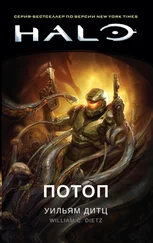Much to Mac’s surprise, a soldier was waiting for her on the platform in Louisville. He was holding a card with her name on it—and hurried forward when she waved at him. He loaded her belongings onto an ancient luggage cart. One of the wheels produced a persistent rattling sound as he led her through the crowded station and out into a poorly lit street. “Sorry, ma’am… The car’s parked a block away. That’s as close as I could get.”
Mac told him not to worry about it and was amazed to discover the vehicle in question was a staff car and not a Humvee. Was that intentional on someone’s part? Or a matter of happenstance?
Whatever the reason, it felt good to settle into the backseat and let Specialist Lee do the driving. Traffic was heavy, which meant that the trip to Fort Knox took more than an hour. Soldier that she was, Mac noticed that there were lots of military vehicles on the roads. More than the last time she’d been there.
Mac had to show her ID at the gate. From there it was a short trip to Bachelor Officers’ Quarters, where a room was reserved for her. A message was waiting: “Please join Colonel Roy Caskins in his office at 0830 tomorrow.” The message was signed by a master sergeant Mac didn’t know. She’d heard of Caskins, however… He was the 8th Armored Cavalry Regiment’s commanding officer, which made him Granger’s CO.
Suddenly it was imperative to come up with a clean uniform. No small task since Mac hadn’t had time for anything more than some hand washing in many weeks. So immediately after she arrived in her room, Mac took a load of laundry down the hall to the shared utility room. It took more than an hour to cycle things through.
The dreams were waiting for Mac when she hit the sack. And when she awoke, it was to hear herself whimpering. It took the better part of an hour to get back to sleep.
Mac got up early, dressed with care, and went to the chow hall for breakfast. She ate a generous serving of bacon and eggs before following a map to Regimental Headquarters. A flight of wooden stairs took her up to the second floor and a spartan waiting room. What decorations there were consisted of photos. Cavalry photos… Which meant the walls were covered with pictures of tanks, Bradleys, and Strykers.
After presenting herself to the staff sergeant behind the reception desk, Mac was told to take a seat. Half a dozen other officers were waiting to see the colonel or one of his staff officers.
Mac knew very little about Caskins other than the fact that his nickname was “Casket Caskins,” because of a well-publicized incident in which the remains of two soldiers had been mishandled by a subcontractor. And, after learning of the slight, Caskins punched the civilian in the face. Charges were brought and subsequently dismissed. But, in spite of the fact that his fellow officers were sympathetic, very few of them thought that Caskins would make general.
The sergeant called her name. And, before Mac could do more than stand up, Caskins was there. He had a bald spot, stood no more than five feet, eight inches tall, and radiated energy. His magnetism seemed to fill the room as he came forward to shake her hand.
“Captain Macintyre!” Caskins proclaimed loudly. “Look at her!” Caskins demanded, as his bright blue eyes probed the room. “This is what an ass-kicking cavalry officer looks like! Come on, Macintyre, let’s have some coffee.” Mac could feel curious eyes on her back as she entered the colonel’s office.
Caskins closed the door behind himself and circled a nearly bare desk. “You did one helluva job in Wyoming,” Caskins said, as he sat down. “I hate to say it, but the spy did us a favor… Crowley was one crazy son of a bitch! Thank God you were there to pick up the pieces. But you’re back now, and maybe that will get Granger off my ass!”
It seemed as if the coffee was a ritual because it arrived without being requested and was placed between them. The corporal who brought the tray vanished as if by magic. Caskins stood to pour. “Describe the battle to me… I read the after-action report, but there’s nothing like hearing the unabridged version.”
So Mac took him through it as concisely as she could. “And that’s when Howard appeared,” she said finally. “He had a girl as his hostage. She allowed herself to sag, and that gave my scout a chance to shoot Howard in the head.”
“With a Colt .45,” Caskins said, “I love it. A story well told, Captain… And honest, too! You have no idea how much bullshit comes my way. That said, let’s talk about the things you could have done better.”
What followed was a review of the iffy decisions Mac had made. Those included going after Howard before her new CO arrived, placing too much reliance on luck, and failing to anticipate the possibility that enemy aircraft would attack. “ Three Confederate helicopters took part in the attack on Fort Carney,” Caskins pointed out. “What did Captain Macintyre learn from that? Zip.”
Mac knew he was right, and some evidence of how she felt must have been visible on her face. Caskins smiled. “Sorry, I know how it feels… But you’re a promising officer. That’s why I took the time to poop on your parade.
“Now… Let’s talk about tonight’s get-together. I like the president. Not only does he respect the military—he’s willing to fight alongside us. Your objective is to get through the evening without embarrassing yourself or the army. And that may be difficult given all the press coverage you’ve had. Do you read me?”
“Sir, yes, sir.”
“Good. Have a good time. I’ll see you down South before long. Give Granger my best.”
Mac stood, delivered a salute, and got one in return. It wasn’t until she was outside and walking toward the BOQ that Mac had time to appreciate the skill with which Casket Caskins had taken her apart and put her back together again. She smiled. Lessons had been learned.
MELLOW VALLEY, ALABAMA
It was a sunny day in Mellow Valley, Alabama. The high school band was playing “Dixie” as the terrorists were hauled into town. There were three of them, all wearing black hoods and sitting in the back of a shiny pickup truck. Mr. Berkowitz was a businessman, Mrs. Berkowitz taught yoga, and their daughter, Ella, was a sad creature best known for being thirty pounds overweight.
Victoria didn’t think people should be executed for owning a jewelry store, having a couple of American flags stored in their attic, or being Jewish. But the local chapter of the Right is Right coalition had the necessary permit, and as Colonel Oxley put it, “Everyday citizens can be useful in fighting Yankee imperialism.” That in spite of the fact that he’d been born in Connecticut.
But, since the proceeding was legal, all Victoria and her team could do was watch as the Berkowitz family was forced off the pickup and marched to the intersection where three truck-cranes were waiting. A noose dangled from each. Ella was sobbing.
Victoria turned her back on the scene. Because the executions were wrong? No, Victoria told herself. Because there could be agitators in the crowd. Folks who might cause trouble.
About a hundred people gathered around. Victoria figured that was a big crowd by Mellow Valley standards. There was an introduction followed by a smattering of applause as a local minister launched into a minisermon about “King” Sloan’s hatred of everything Southern. And that was when Victoria heard the roar of unmuffled engines. The sound sent a jolt of adrenaline into her bloodstream. The mike was attached to her vest. “Heads up! Vehicles inbound. Take cover!”
The resistance fighters were riding in all manner of rat rods—and the crowd scattered as they converged on the intersection. Some of the locals were armed and fired pistols at the invaders. That was a mistake. Machine-gun fire cut them down. “Kill the drivers!” Victoria shouted. “Stop them!”
Читать дальше
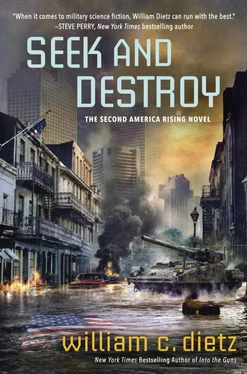
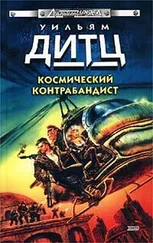
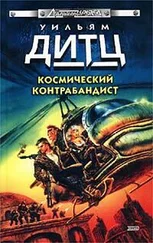
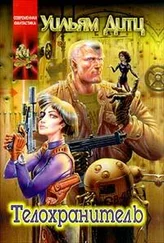
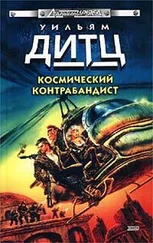
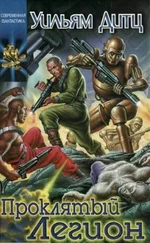
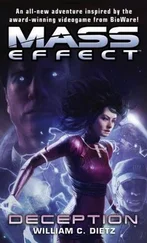

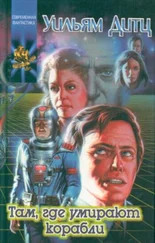
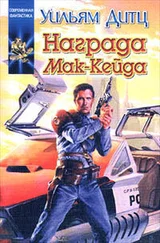
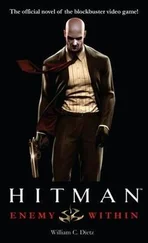
![Уильям Дитц - Избранные произведения в одном томе [Компиляция]](/books/389750/uilyam-ditc-izbrannye-proizvedeniya-v-odnom-tome-k-thumb.webp)
